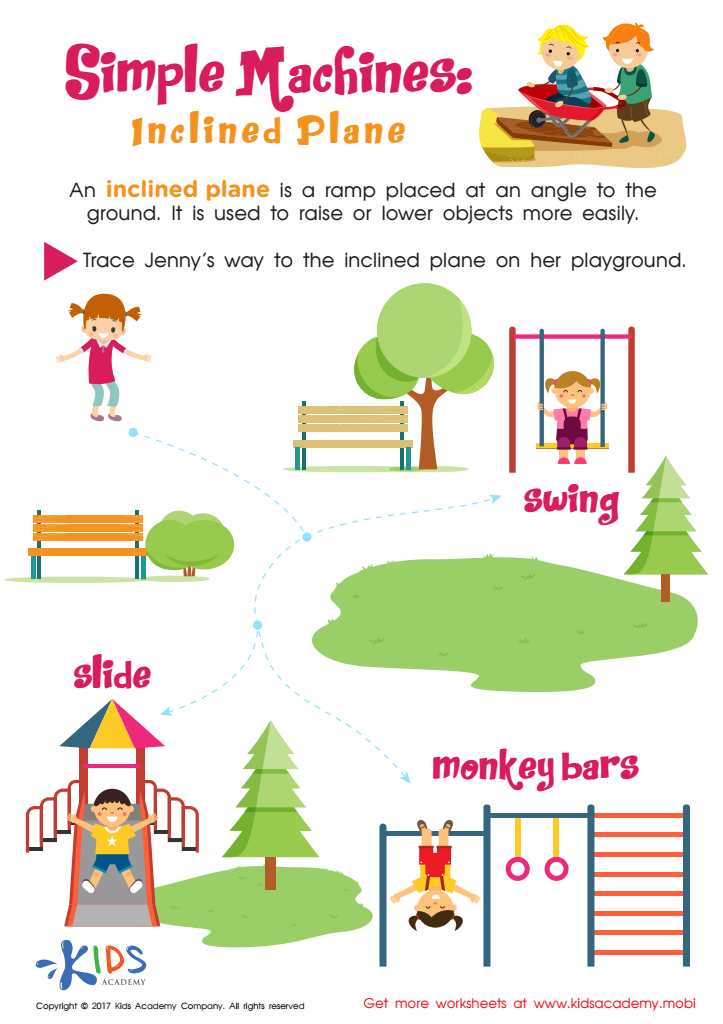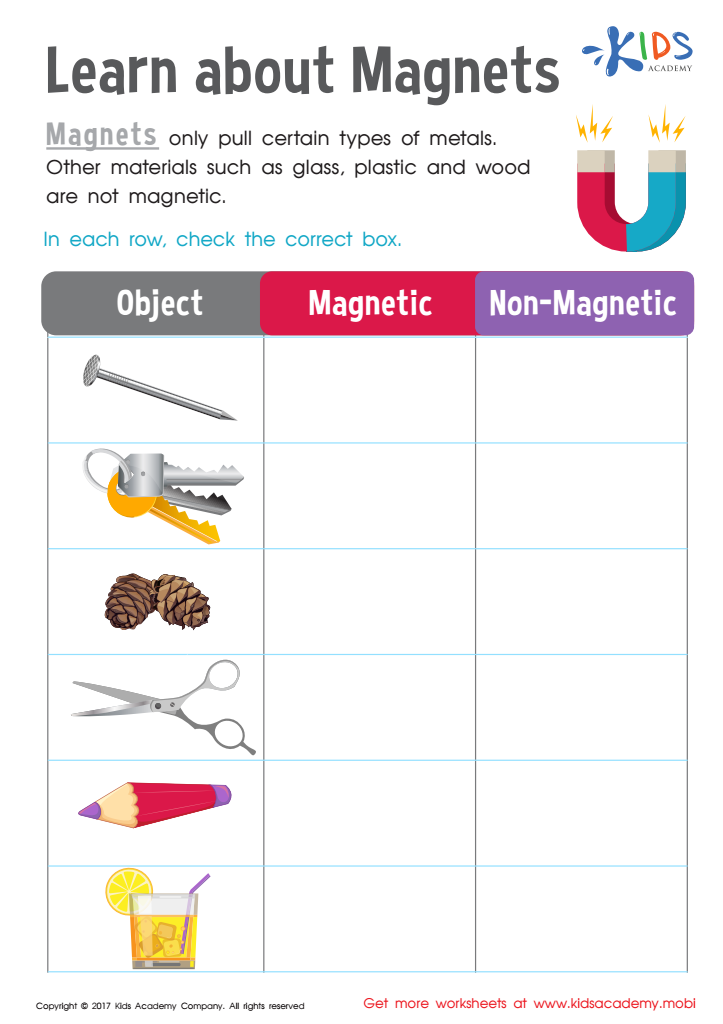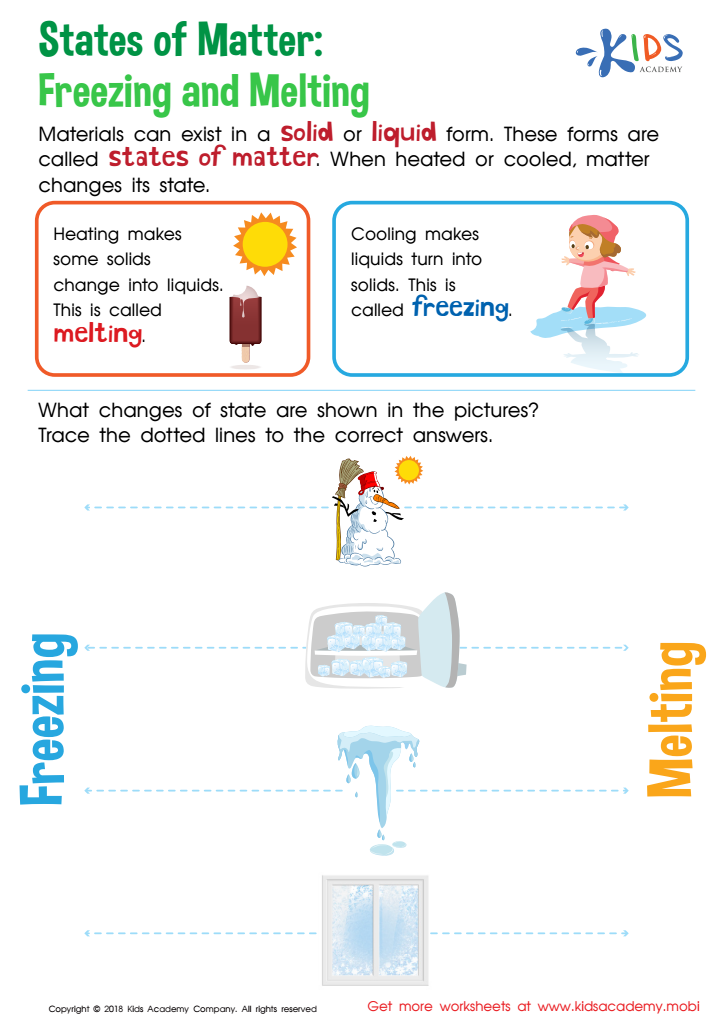Enhancing observational skills Normal Physical Science Worksheets for 8-Year-Olds
3 filtered results
-
From - To
Welcome to our page dedicated to Enhancing Observational Skills with Normal Physical Science Worksheets for 8-Year-Olds! These engaging worksheets are designed to strengthen students' abilities to observe, analyze, and draw conclusions about the physical world around them. Tailored for 8-year-olds, each exercise encourages critical thinking through interactive activities that promote hands-on learning. From exploring the properties of materials to observing physical changes, these worksheets foster curiosity and a deeper understanding of science concepts. Perfect for classroom use or at-home practice, they serve as an invaluable resource for young learners to develop their observation skills and scientific thinking. Dive in and excite your child's scientific journey today!


Simple Machines Inclined Plane Worksheet


Magnetic Or Not Worksheet


States of Matter: Freezing and Melting Worksheet
Enhancing observational skills in 8-year-olds, particularly in the context of Normal Physical Science, is crucial for several reasons. Firstly, strong observational skills foster curiosity and critical thinking, allowing children to engage meaningfully with the world around them. By learning to notice and record their observations, children can develop a scientific mindset, promoting inquiry-based learning that encourages exploration and experimentation.
Moreover, these skills support foundational concepts in physical science. For instance, when children learn to observe phenomena such as movement, force, or states of matter firsthand, they can connect theoretical knowledge with real-world applications. This hands-on engagement helps solidify understanding and retention of scientific principles.
Parents and teachers play key roles in this developmental process. By providing opportunities for observation—through nature walks, simple experiments, or classroom discussions—they can nurture these skills, leading to improved communication, collaboration, and critical analysis abilities. Additionally, fostering observational skills supports emotional and social development, as children learn to express and share their insights with peers and adults.
Ultimately, enhancing observational skills equips children with tools for lifelong learning, encouraging a proactive approach to understanding and responding to their environment, which is essential in an increasingly complex world.
 Assign to My Students
Assign to My Students


















